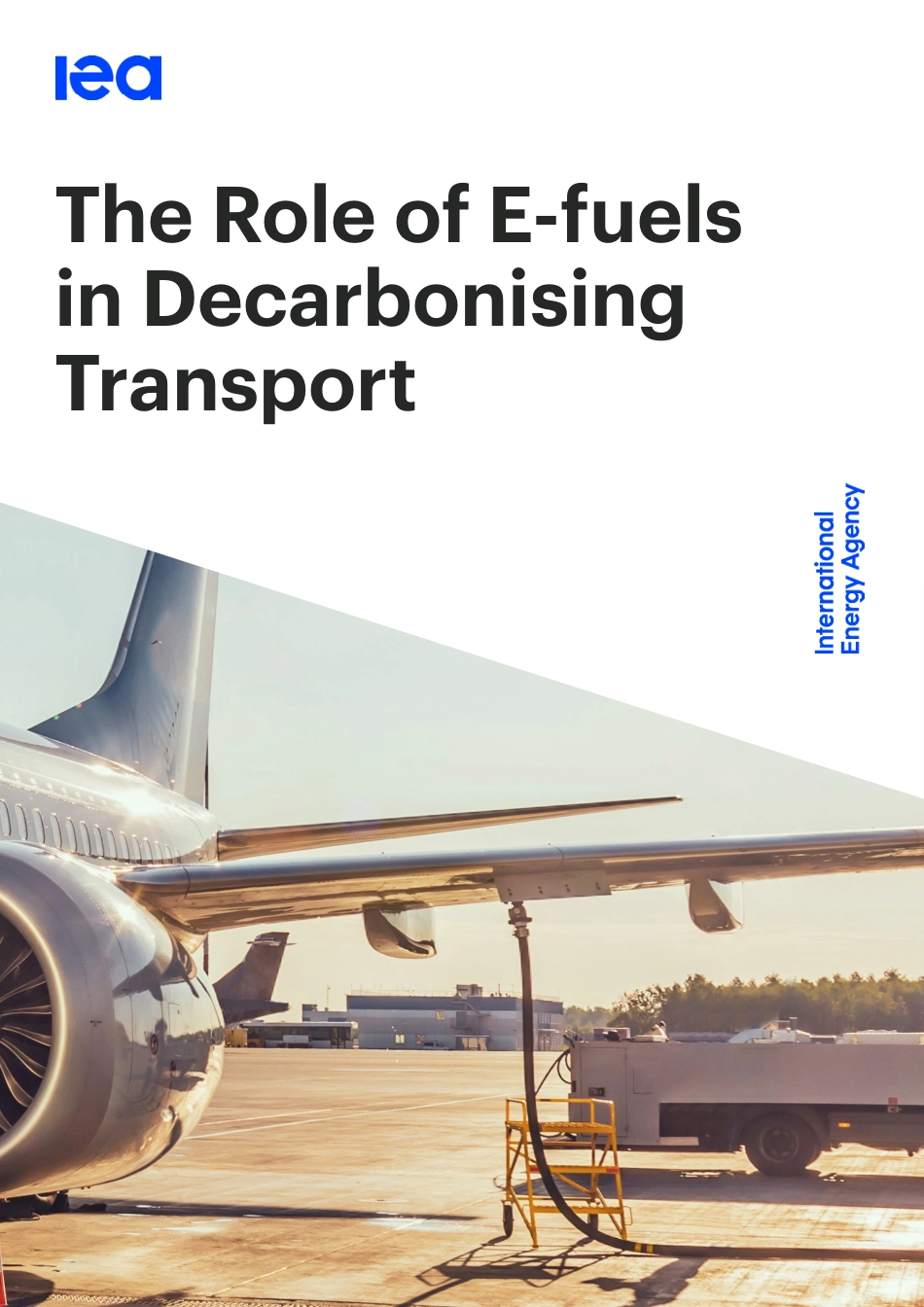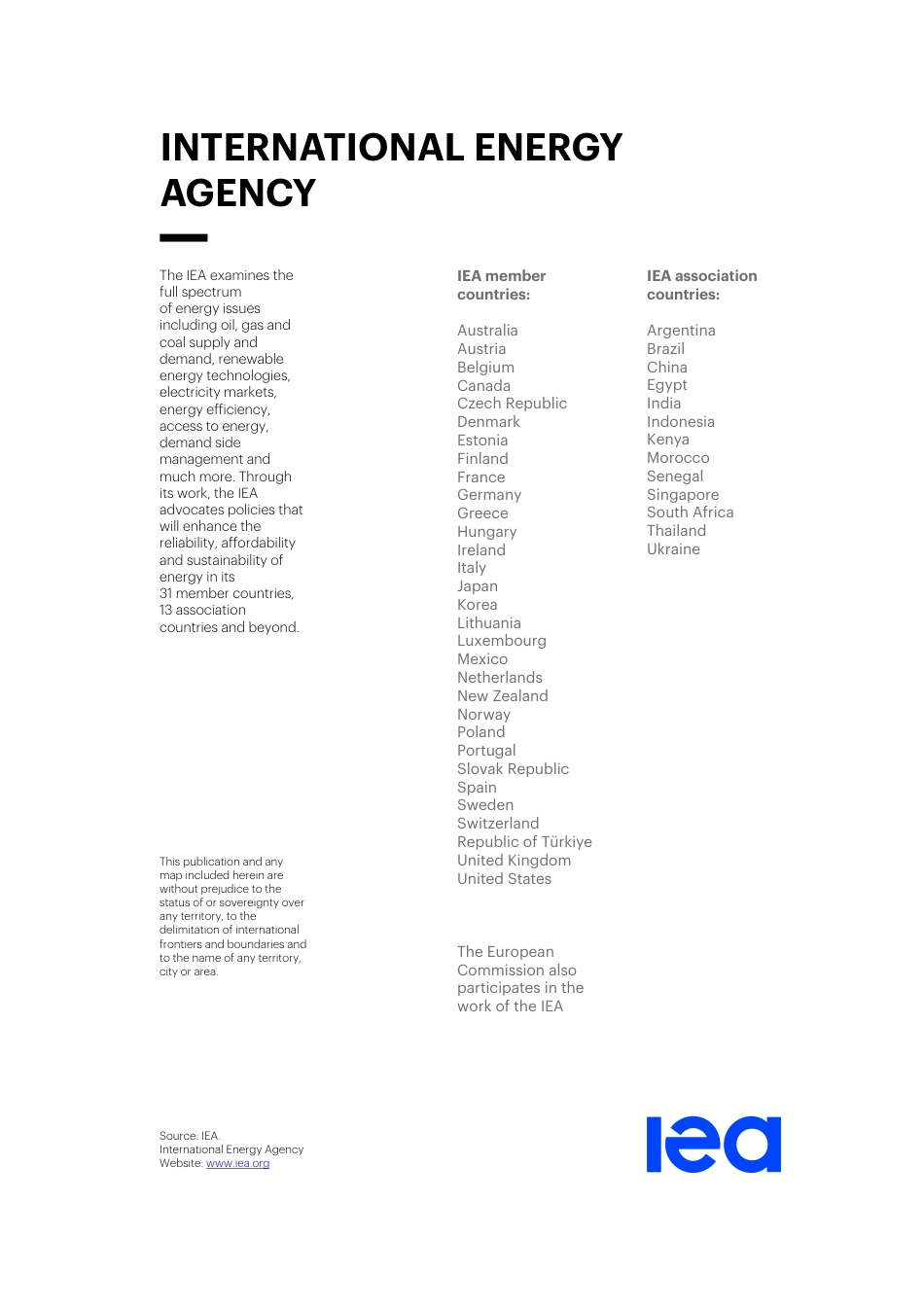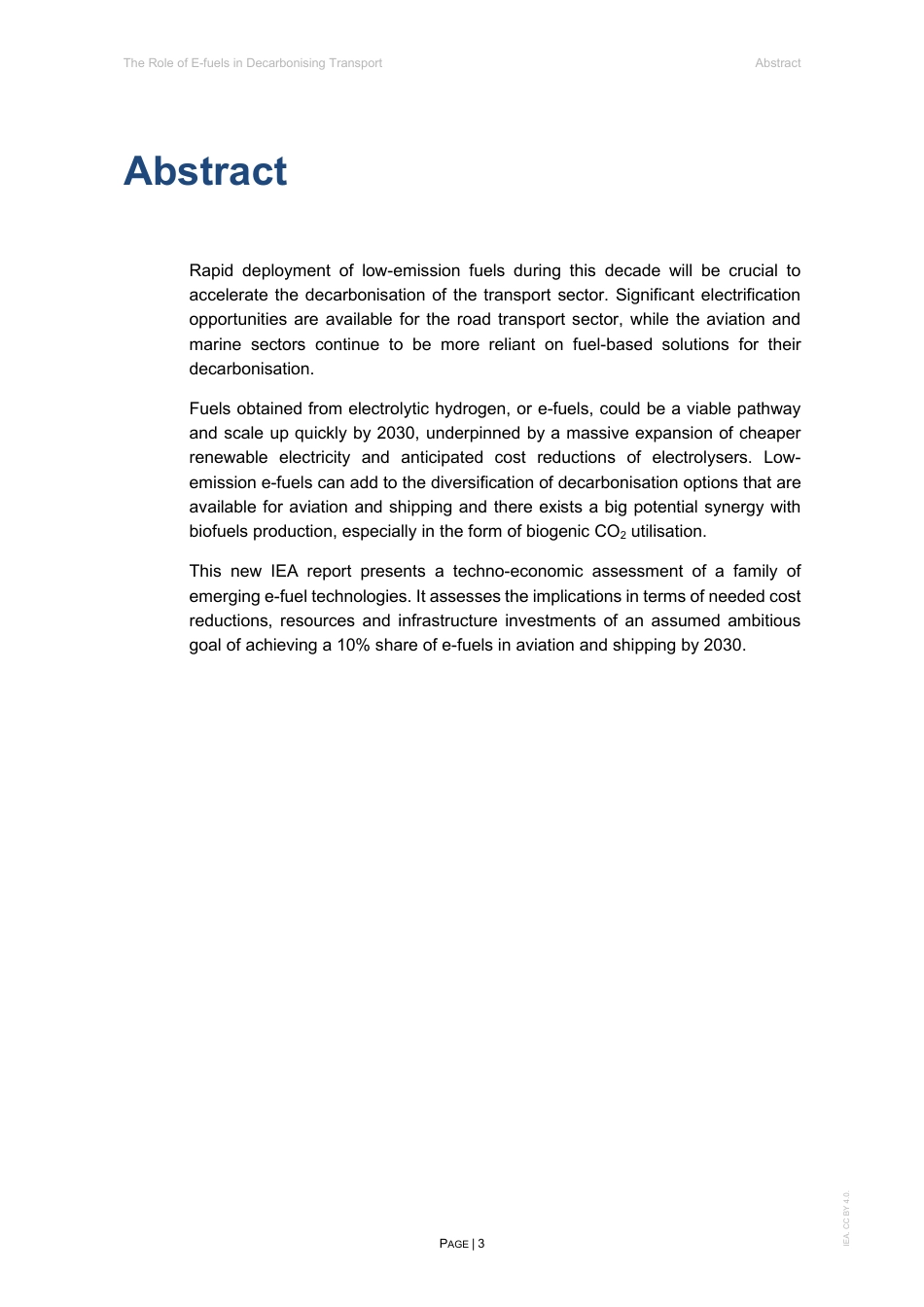The Role of E-fuels in Decarbonising TransportThe IEA examines the full spectrum of energy issues including oil, gas and coal supply and demand, renewable energy technologies, electricity markets, energy efficiency, access to energy, demand side management and much more. Through its work, the IEA advocates policies that will enhance the reliability, affordability and sustainability of energy in its 31 member countries, 13 association countries and beyond.This publication and any map included herein are without prejudice to the status of or sovereignty over any territory, to the delimitation of international frontiers and boundaries and to the name of any territory, city or area.Source: IEA. International Energy Agency Website: www.iea.orgIEA member countries: AustraliaAustriaBelgiumCanadaCzech RepublicDenmarkEstoniaFinlandFranceGermanyGreeceHungaryIrelandItalyJapanKoreaLithuaniaLuxembourgMexicoNetherlandsNew ZealandNorwayPolandPortugalSlovak RepublicSpainSwedenSwitzerlandRepublic of TürkiyeUnited KingdomUnited StatesThe European Commission also participates in the work of the IEAIEA association countries:Argentina BrazilChinaEgyptIndiaIndonesiaKenyaMoroccoSenegalSingapore South Africa Thailand UkraineINTERNATIONAL ENERGYAGENCYThe Role of E-fuels in Decarbonising Transport Abstract PAGE | 3 IEA. CC BY 4.0. Abstract Rapid deployment of low-emission fuels during this decade will be crucial to accelerate the decarbonisation of the transport sector. Significant electrification opportunities are available for the road transport sector, while the aviation and marine sectors continue to be more reliant on fuel-based solutions for their decarbonisation. Fuels obtained from electrolytic hydrogen, or e-fuels, could be a viable pathway and scale up quickly by 2030...



